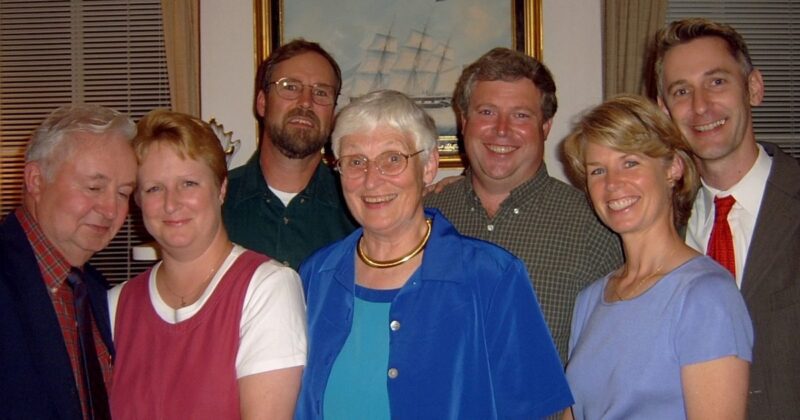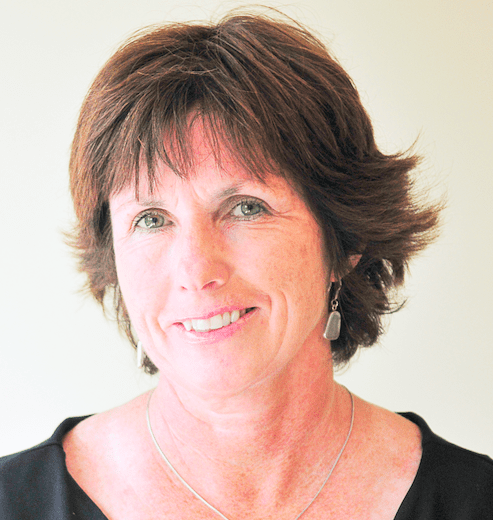Kate Napoli received the urgent call in late March as Maine’s coronavirus infections and deaths started to spike.
“Your mother is failing quickly,” explained the nurse at Sunnybrook, a Brunswick assisted living home.
If Kate or her four siblings wanted to see their 86-year-old mother before she passed, they should come immediately, the nurse said. Due to virus restrictions, they would have to be gowned and masked, and could visit one at a time for a brief period.
Kate called her younger sister, Elizabeth Stevens, who lived closest to their mom.
The eldest of her siblings and her mother’s health proxy, Kate also called her brothers, alerting them about her mother’s condition. Each of them lived in Massachusetts, three hours from Brunswick.
Kate packed a bag with food, clothing and flowers for her mother. As she sped north, she prayed her mother would be alive when she arrived.
I don’t want her to die alone, Kate thought.
Three weeks earlier Julia Davenport Stevens had been placed in hospice care at Sunnybrook. In the decade after her husband Joseph died, she suffered several lung and health illnesses.
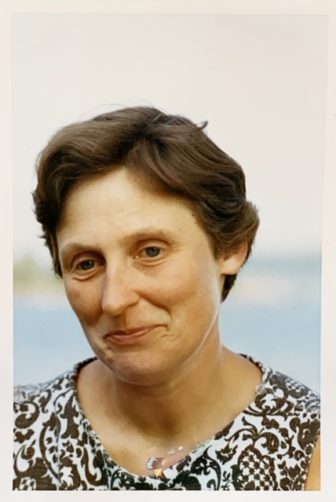
In early March, Julia told her doctor, “I’m tired and don’t want to fight anymore.”
Each of her four children visited her at Sunnybrook after she made her decision.
On this Friday afternoon, two of Julia’s sons raced north. John, the eldest son, was unable to travel because his wife was sick.
RELATED The Last Responders: Consoling the dying and grieving in the COVID-19 era
As the Stevens children drove to Maine, they thought of their invincible and formidable mother. Julia Stevens had spent most of her life working as a nurse. In between, she raised five children and worked tirelessly to make the world a better place. When she and her family lived in Acton, Massachusetts, she was elected as a selectwoman. She joined the League of Women Voters and served as president. She adored music, played the piano and gave lessons to local children.
When Julia moved back to Maine, where she was raised, she started the Boys and Girls Clubs in Harpswell. She created her church nursery and the local garden club. She also worked as a visiting public health nurse in Maine and served on the board of directors for the CHANS Home Health and Hospice in Brunswick.
Julia also relished throwing parties and spending time with her family at their camp on White Island in Middle Bay off Harpswell.
“She had many varied interests and was very civic minded,” said Stevens’ sister, Mary Carpenter, who lives in Newton, Massachusetts. “But first of all, she was a devoted mother to her five children and a dedicated wife to her husband.”
On March 27, Julia’s youngest daughter Elizabeth arrived in the afternoon, eager to see her mother. The staff nurse took Elizabeth’s temperature and handed her a gown and mask.
“You can’t stay long,” the nurse informed her.
The nurse escorted Elizabeth to her mother’s private apartment, which Elizabeth often visited. Her mother lay in bed sleeping, sedated with morphine.
“Hi, Mommy,” Elizabeth whispered.
Her mother opened her eyes.
“Oh Mommy,” Elizabeth cried. “Are you ready to go to heaven?”
Her mother shook her head no.
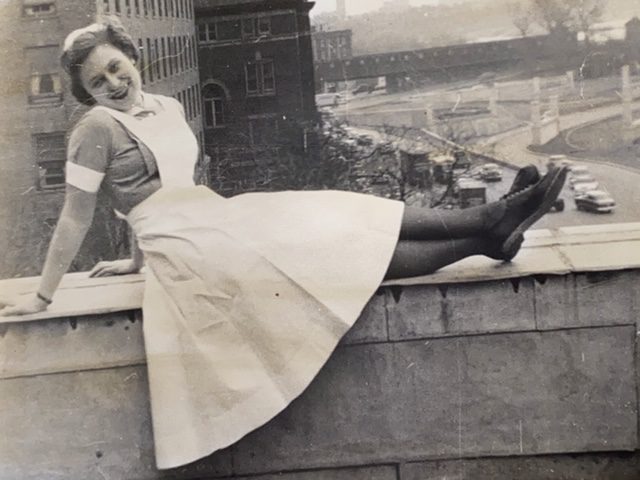
Elizabeth read a blessing she often shared with her mother.
Life is short, and we have too little time to gladden the hearts of those who travel the way with us. So, be swift to love and make haste to be kind …
“It’s best you say your goodbye now,” the nurse told Elizabeth.
Elizabeth said goodbye to her mother and headed out the door. As she sat in her car crying, Elizabeth called her sister Kate.
“I’m on my way,” Kate said.
Shortly after 5 p.m., Kate arrived at Sunnybrook. The nurse took Kate’s temperature, handed her a mask and told her she could not bring anything inside. She also said no one else would be allowed in.
Her mother continued to lay unresponsive with her eyes closed. Kate spoke softly to her, explaining that her siblings wanted to come but were not allowed to do so.
“She seemed sad about it,” Kate recalled, “but she had enough meds in her that it didn’t agitate her.”
RELATED The Last Responders: Saying goodbye to Dad
Kate held her mother’s hand and used her phone to play her mother’s favorite songs. She played classical music and some John Denver hits.
In between, she called her brothers Mark and Matthew.
“They’re not going to let you in,” Kate explained.
Mark, who lived in Boston, was halfway there when he learned the news.
“It’s OK, Kate,” he told his older sister. “If they’re not making you leave, then you should stay with Mom.”
Mark’s older brother Matthew had already arrived in Brunswick when he learned he could not see his mother. He drove to his sister Elizabeth’s house. Desperate to do something for her mother, Elizabeth called Rev. Carolyn Eklund, pastor of St. Paul’s Episcopal Church, where Elizabeth and her mother attended.
“My mother is dying and I want her to have last rites,” Elizabeth explained.
Eklund phoned Sunnybrook and spoke to a nurse.
“I tried to make an argument that I know how to gown and glove and could take precautions,” said Eklund. “But I was turned down. I’d be using personal protective equipment that needs to go to people who go in that room daily.”
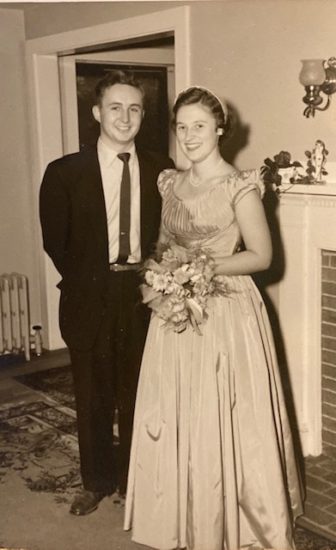
As the sky grew darker on that Friday evening, Kate continued to talk to her mother. Though her mother’s eyes remained closed, Kate sensed that her mom knew she was there.
“You were a good mom,” Kate said. “I appreciate all that you have done for us.”
Kate slept in her mother’s room and learned the next morning that Rev. Eklund had set up a Zoom meeting to give last rites.
RELATED The Last Responders: A valiant father, husband and cancer fighter loses the battle to COVID-19
On Saturday, March 28, the family scrambled to figure out how to use Zoom.
At 4 p.m., Julia’s five children, her sister and brother-in-law joined Rev. Eklund in prayer. Kate held her camera phone up to her mother’s face, so her siblings and aunt could see her.
Eklund led the family in the Lord’s Prayer and recited the Commendation for the Dying.
Go forth, Christian soul, from this world in the name of God the almighty Father, who created you, in the name of Jesus Christ, Son of the living God, who suffered for you, in the name of the Holy Spirit, who was poured out upon you, go forth, faithful Christian.
When Eklund finished the last rites, she bowed out of the call, allowing the family to say final goodbyes.
As Kate held the phone to her mother’s ear, each of Julia’s children and her sister spoke.
“We love you,” they told her.
“We’re praying for you.”
“We’ll miss you,” Elizabeth told her mother. “But it’s OK to go, Mom.”
Though she showed no signs of hearing the prayers, her family believes Julia Stevens heard their final acknowledgments of love.
Forty minutes after the Zoom call ended, Julia took her last breath.
In the weeks following her death, Julia’s children and her sister have reflected upon those cherished moments.
Mary was grateful for the virtual glimpse of her sister, whom she had not seen for several months.
“My husband had been sick so I was unable to come visit her,” Mary said. “It was undoubtedly precious to say goodbye.”
Mark, Julia’s youngest son, agreed Rev. Eklund’s service was appreciated and meaningful. But it was also a bit disconcerting and contrasted starkly to his father’s death. Joseph Stevens died at home with his five children and wife at his side.
“You can’t imagine being denied access to a dying parent,” Mark said. “Zooming goodbye to my mother was like watching someone die on TV.”
Still, he understands that the pandemic left his family with few options. And Mark knows his mother, who spent her life working to help others as a nurse, would understand why her death unfolded as it did.
“She would totally understand this protocol and would have been supporting it, telling us, ‘You absolutely cannot go near those vulnerable people.’”

